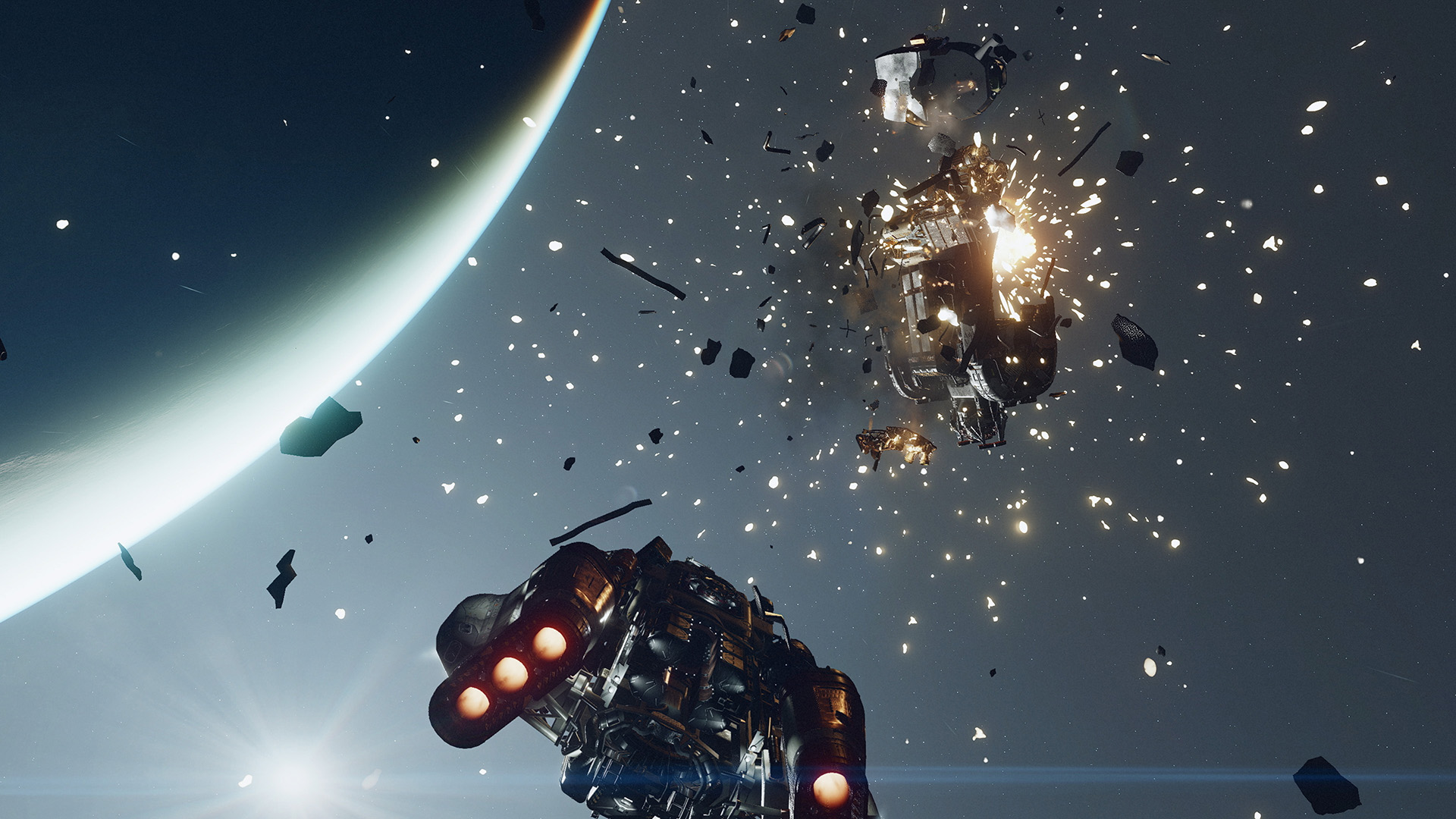
Game of the Month: Starfield
Publisher: Xbox Game Studios
Developer: Bethesda Games Studios
Platforms: Xbox Series X/S, PC
Release Date: 09.06.2023
In a sense, Starfield is three different games in one.
The first and most central vein of the experience is exactly what you’d expect from a Bethesda sci-fi RPG—call it Skyrim in space, Fallout on the final frontier. As in those earlier games, you build a character and embark on a sprawling adventure in a fantastical world, with combat, loot, dialogue trees, memorable quests, dozens of skills to level up, and opportunities for creative problem solving.
In Starfield, your custom hero starts as a miner on a remote planet in the year 2330, a distant future in which humanity has left Earth behind to settle the stars. After encountering a mysterious artifact that gives you an otherworldly vision, you’re recruited by Constellation, an organization of interstellar explorers, to join them in their quest to discover the artifact’s origins. Unraveling this enigma draws you into the orbit of the factions jockeying for power within the Settled Systems: rival governments, space-pirates, megacorporations, and even more powerful forces working in the shadows. Rather than a single open-world, though, your quest unfolds across 120 star systems with more than 1,000 procedurally-generated planets and moons.
That brings us to the second major vein running through Starfield: a chill-out exploration game akin to No Man’s Sky. You can spend hundreds of hours just traveling the stars, landing on planets, and surveying their geography and wildlife. This side of the game is definitely more about breadth than depth—cataloging planets is ultimately a fairly simple, repetitive gameplay loop—but there’s an appealingly low-stakes, zen vibe to wandering these beautiful, often desolate landscapes.
Starfield’s third and final vein emphasizes creativity and construction, channeling some of the spirit of Minecraft or even Animal Crossing. Across those 1,000-plus planets, you can also mine for resources, construct outposts, and staff them with members of your crew. You can even get into the nitty gritty of interior decoration, crafting and placing furniture. Put enough time into this side of the game, and you can build a tiny galactic empire that will make sure you’ll never have to worry about having enough credits again.

These additions to a familiar RPG formula give Starfield a sense of identity that goes much deeper than a change of setting. By combining these elements with other innovations, like a creative take on New Game Plus that we won’t spoil, Bethesda has essentially created an RPG that you can explore for literally thousands of hours on a single save file. If Starfield pulls you into its orbit, you could be playing for years.
For all its breathtaking ambition, however, a few elements of Starfield don’t fully live up to the fantasy. Character progression is slow, taking many hours to fully flesh out your intended playstyle, and without any respec option, it’s a pain to pivot your approach midway through. While compellingly fleshed out, the sci-fi setting can still feel like a hodgepodge of ideas from other popular movies and books without a strong hook. And Starfield’s approach to space travel, which relies heavily on menus and loading screens rather than seamlessly flying between and landing on planets, diminishes some of the wonder you’d expect from a journey across the stars.
Still, if you’re looking for a satisfying, deep Bethesda RPG experience in a space setting, there’s no question that Starfield delivers on that promise, all while adding on some surprisingly robust elements that ramp up the scope to almost ludicrous levels. Other games may be better at some of the individual things Starfield does, but there’s nothing that offers all this variety, at this level of quality, in one package.